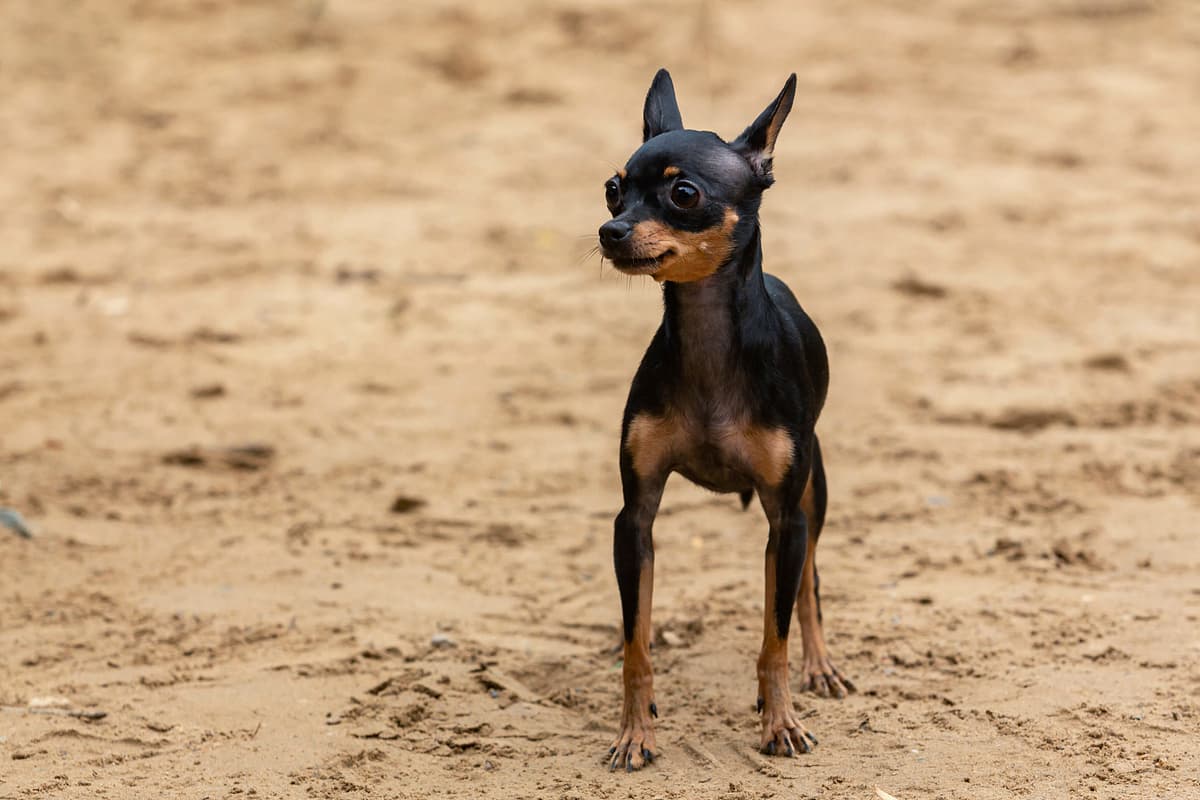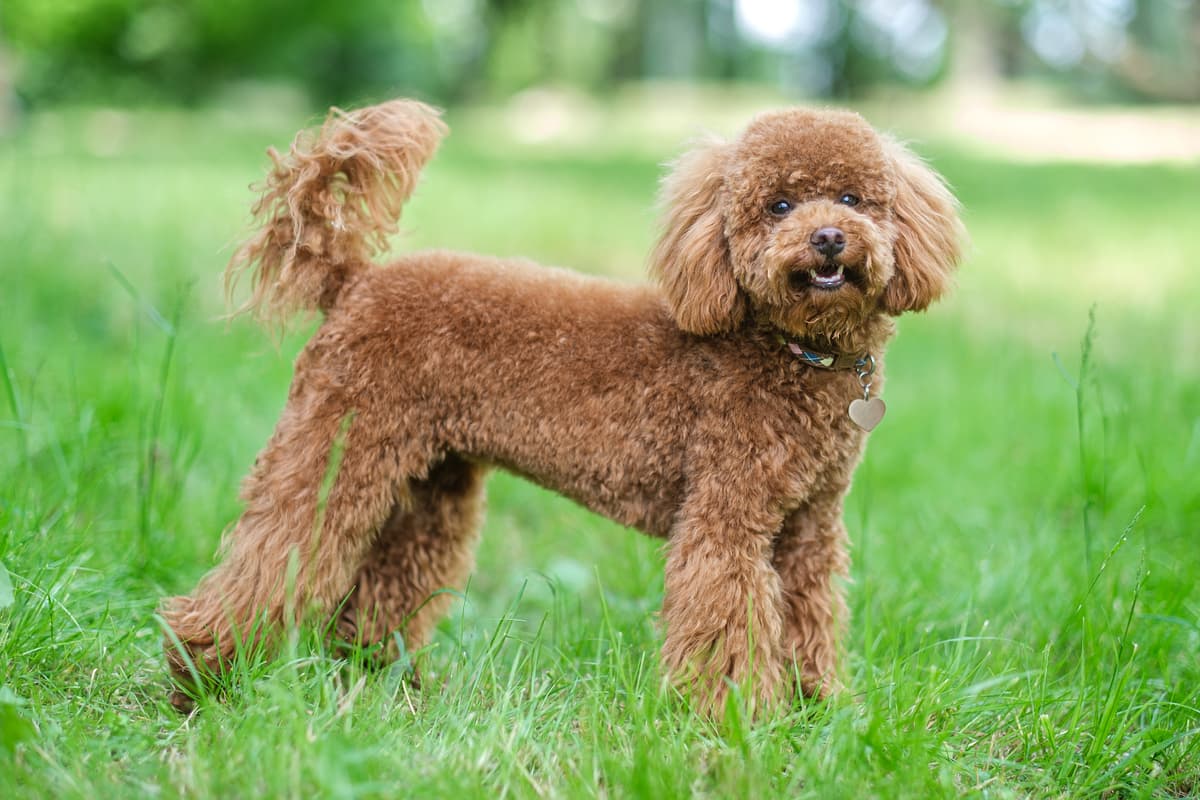English Toy Terrier vs Poodle
Discover the differences between English Toy Terrier and Poodle to make the best choice for your situation.
Try different breeds

English Toy Terrier
Lively, affectionate, and alert, this small companion thrives in active homes and loves close bonds with people. Sleek and graceful, it combines elegance with a spirited personality.

Poodle
Elegant, intelligent, and highly trainable, this breed stands out for its lively spirit and loyal companionship. Their hypoallergenic coat and playful personality make them ideal family pets.
Quick comparison
Small
2.7–3.6 kg
Short, smooth
12–13 years
2.7–3.6 kg
Moderately active
Medium
20–32 kg
Curly, dense
12–15 years
18–27 kg
High energy
Personality & behavior
Compare the personality traits and behavioral characteristics of both breeds.
English Toy Terrier
Can be reserved with strangers, loyal to family
Quick to learn and eager to please
Active and enjoys regular daily exercise
Likes interactive games, fun-loving with owners
May struggle with major routine or environment changes
Poodle
Warm and sociable with family and guests
Highly intelligent and quick to learn commands
Needs regular activity and enjoys exercise
Loves games and interactive playtime
Easily adjusts to new environments and routines
Care needs
Exercise, grooming, and daily care requirements
English Toy Terrier
Patellar luxation, dental issues
Poodle
Hip dysplasia, Addison’s disease
Suitability
How well each breed fits different living situations and families
English Toy Terrier
Good option
Responsive and intelligent but needs consistent training and socialization for best results
Excellent fit
Small size and low exercise needs suit compact living spaces well
Moderately suitable
Enjoys play but lacks stamina for very high-energy routines
Use caution
Delicate build may not tolerate rough handling from young children
Needs supervision
Can coexist with other pets if socialized early and properly
Not recommended
Prone to separation anxiety and dislikes being left alone for extended periods
Poodle
Great choice
Intelligent and eager to please, Poodles are easy for beginners to train and manage.
Highly suitable
Poodles adapt well to apartment life if given daily exercise and mental stimulation.
Perfect fit
Their energy and love for activity make them great companions for active households.
Very friendly
Poodles are gentle and patient with children when socialized from a young age.
Gets along well
Poodles usually coexist peacefully with other pets, especially if socialized early.
Prone to anxiety
Poodles can develop separation anxiety if left alone for long periods regularly.
Breed strengths
What each breed excels at and their best qualities
English Toy Terrier
- Alert watchdog instincts
- Loyal and affectionate with owners
- Compact size suits apartment living
- Generally clean and low odor
- Quick to learn basic commands
Poodle
- Highly intelligent and easy to train
- Hypoallergenic coat reduces shedding
- Strong bond with family members
- Adaptable to various living environments
- Excellent performance in canine sports
Challenges & considerations
Potential challenges and considerations for each breed
English Toy Terrier
- Prone to separation anxiety when left alone
- Sensitive to cold temperatures
- May be timid with unfamiliar people
- Requires regular mental stimulation
- Can be vocal if not properly trained
Poodle
- Requires regular professional grooming
- Prone to separation anxiety if left alone
- Needs daily mental and physical stimulation
- Can be reserved with unfamiliar people
- Susceptible to certain genetic health issues
Ready to choose your perfect breed?
Learn more about each breed or compare other breeds to find the perfect match for your lifestyle.
Discover more helpful tools
Make use of our other free tools to get the most out of your pet experience
